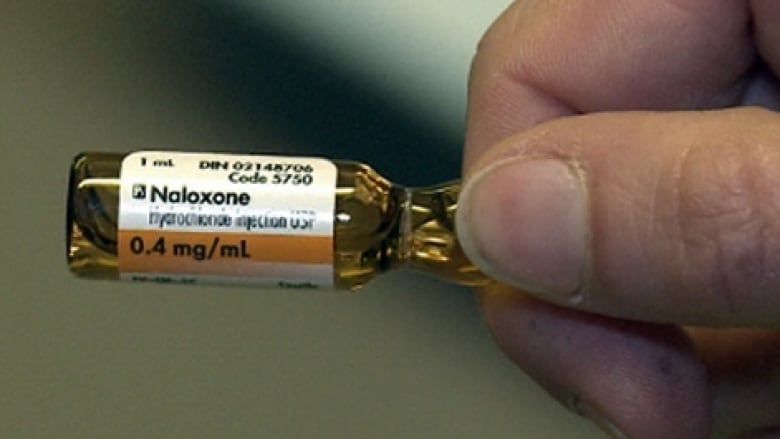More Montreal paramedics needed to administer naloxone: public health officials
The antidote reverses the effects of opiates, such as heroin, to prevent fatal overdoses

Public health officials are pushing for more paramedics to get training on how to administer a life-saving antidote after a jump in the number of fatal opiate overdoses in Montreal in recent months.
I think naloxone should be part of the skills and medications that paramedics should have, said Carol Morissette, a medical consultant with Montreals public health agency.
The agency reported 14 fatal overdoses in May normally the average number of fatal overdoses in Montreal in an entire year.
The agency also recorded six deaths in June and one in July.
Besides these 21 deaths, 33 people were rushed to a hospital emergency room for a drug overdose.
- Rash of fatal overdoses in Montreal could be linked to fentanyl
- Montreal fatal overdose rate 4 times the average in June
- Naloxone, safe injection sites could curb overdoses in Quebec
The health agency says it has trained 60 paramedics to administer naloxone.
Until recently, the antidote was only available in Montrealto someparamedics and hospitals.
The drug helps delay the effects of a drug overdose, providing the extra time necessary to get a patient to a hospital.
Naloxone can be injected just like an EpiPen, but in Quebec only certain health professionals are allowed administer it.
Training for family members,healthworkers
Now municipal and provincial health authorities are working with a Montreal drug-users support group to get naloxone into the hands of more people who may need it, such as family members of drug users and people who work with those struggling with drug addictions.
The objective is to target as many people as we can [who] are opiate users and street drug users so that when someone does overdose, they can recognize the signs and administer naloxone and call 911, said Guy-Pierre Levesque, the executive director of the non-profit organization Mta d'me.
Levesque said earlier this year, one of Mta d'mes members died of an overdose.
If people would have been trained with naloxone, probably this person would still be alive today if they had naloxone on their hands.
Levesque said if Quebecs health ministry approves the project, Mta d'me could start training some of its members to use the overdose antidote by the fall.












_(720p).jpg)


 OFFICIAL HD MUSIC VIDEO.jpg)
.jpg)



























































































